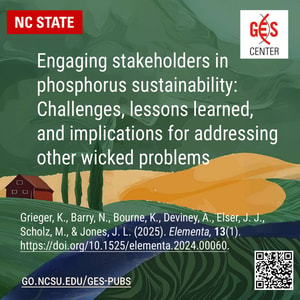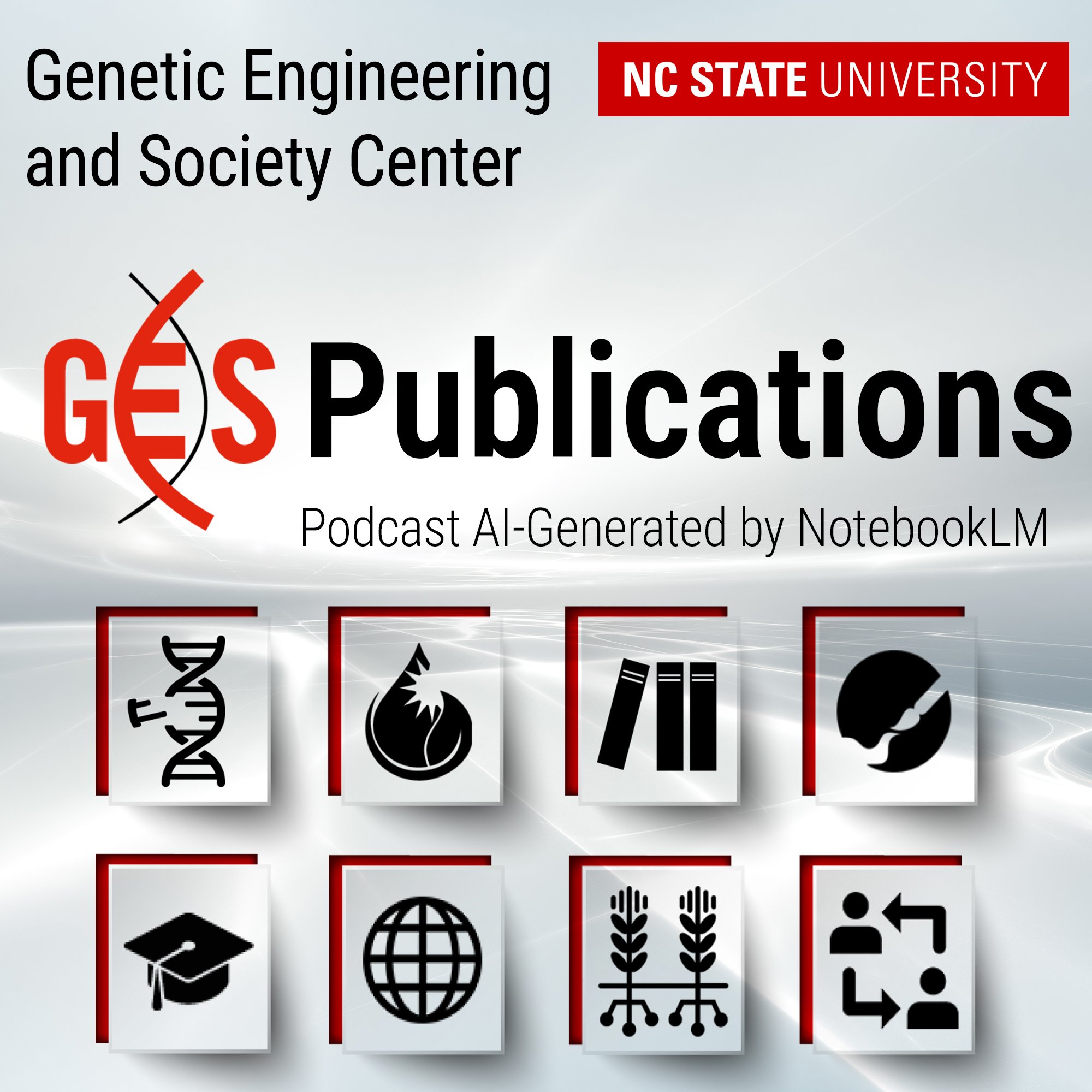S1E5 - Lessons from Phosphorus: Stakeholders, Sustainability & Wicked Problems

Commentary and overview of GES Center publications, AI-generated by NotebookLM
Engaging stakeholders in phosphorus sustainability: Challenges, lessons learned, and implications for addressing other wicked problems
This episode of the GES Publications podcast provides an AI-generated overview of the article below, highlighting key findings and insights into the societal dimensions of biotechnology. Episodes are created using Google Gemini’s NotebookLM to summarize faculty and student publications from NC State University’s Genetic Engineering and Society Center.
Citation
Grieger, K., Barry, N., Bourne, K., Deviney, A., Elser, J. J., Scholz, M., & Jones, J. L. (2025). Engaging stakeholders in phosphorus sustainability: Challenges, lessons learned, and implications for addressing other wicked problems. Elementa, 13(1). https://doi.org/10.1525/elementa.2024.00060. PDF. Graphic
Authors
Khara Grieger, Nourou Barry, Kim Bourne, Alison Deviney, James J. Elser, Matt Scholz, and Jacob L. Jones
Abstract
To address wicked problems, particularly in sustainability, interdisciplinary solutions that bridge science and society are essential. These solutions inevitably require the involvement of diverse stakeholders. However, the field of stakeholder engagement includes a wide range of approaches, and there is no universally agreed-upon set of standard practices for engagement, particularly in wicked problem contexts. This article addresses this gap by connecting scientific knowledge on stakeholder engagement with an exploration of its challenges, drawing from both the broader literature and the authors’ own experiences in sustainability contexts. In particular, this article first identifies and briefly reviews 6 key steps and best practices for stakeholder engagement, and then discusses challenges and lessons learned from engaging stakeholders in the context of phosphorus sustainability largely within U.S. contexts. Phosphorus sustainability is a valuable case study due to its vital role in supporting global agriculture and societal functioning, while also contributing to environmental challenges caused by excess runoff, among other issues. Reflecting on both best practices and our own experiences, we identify 3 key challenges to engaging stakeholders in phosphorus sustainability: (i) managing the inherent tensions between breadth and depth of engagement, (ii) difficulties in evaluating the collective impact of engagement, and (iii) building sufficient capacity in carrying out engagement. To address these limitations, we highlight lessons we have learned in our own engagement efforts and provide recommendations for future research on stakeholder engagement, particularly in the context of wicked sustainability problems.
Significance
This article by Grieger et al. (2025) shows how structured stakeholder engagement can advance phosphorus sustainability and other complex environmental challenges. Drawing on the STEPS Center’s work, it highlights best practices across engagement stages and identifies persistent hurdles like balancing breadth and depth, measuring impact, and building institutional support. The piece offers a practical framework for aligning science, policy, and communities in tackling “wicked” sustainability problems.
Keywords
Stakeholder engagement, phosphorus, sustainability, wicked problems
Genetic Engineering and Society Center
Explore More
- Browse the full GES publication library: go.ncsu.edu/ges-pubs
- Learn about the GES Center: go.ncsu.edu/ges
- For live recordings from our Colloquium series, subscribe to our companion podcast, GES Center Lectures: go.ncsu.edu/ges-podcast
GES Center at NC State University—Integrating scientific knowledge & diverse public values in shaping the futures of biotechnology.
Produced by Patti Mulligan, Communications Director, GES Center, NC State
Find out more at https://ges-publications.pinecast.co
